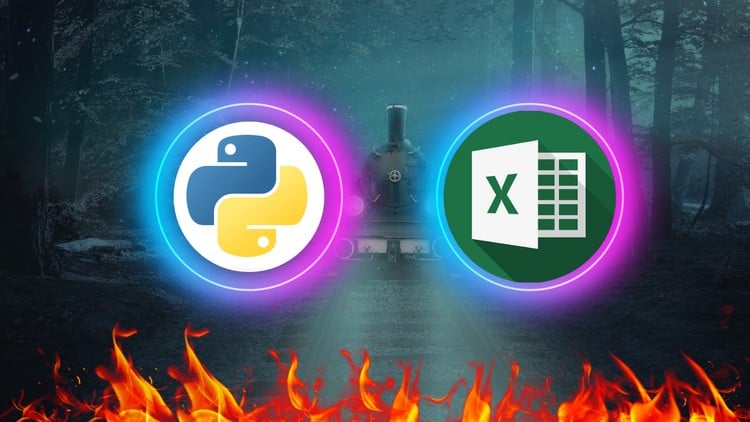
Master Excel automation with Python scripts to handle data entry, cleaning, and reporting faster than ever
⏱️ Length: 5.0 total hours
👥 235 students
🔄 October 2025 update
Add-On Information:
Note➛ Make sure your 𝐔𝐝𝐞𝐦𝐲 cart has only this course you're going to enroll it now, Remove all other courses from the 𝐔𝐝𝐞𝐦𝐲 cart before Enrolling!
-
Course Overview
- This course revolutionizes Excel workflows by leveraging Python’s scripting power. Move beyond manual data manipulation to strategic automation, eliminating repetitive tasks and human error from your daily routine.
- Embark on a transformative journey from Python basics tailored for Excel interaction to architecting sophisticated, end-to-end automation solutions for various business needs.
- Discover the symbiotic relationship between Excel and Python. Utilize Excel’s familiar interface for data visualization, while Python handles intensive data preparation, calculations, and intelligent task scheduling.
- Transform into an automation architect, gaining profound understanding to conceptualize, identify opportunities, and implement scalable Python solutions across business intelligence, finance, and operations.
-
Requirements / Prerequisites
- Basic Excel Understanding: Familiarity with Excel interface, worksheets, cells, and common functions is beneficial.
- Fundamental Programming Logic (Recommended): Prior conceptual understanding of variables, loops, or conditionals will aid Python learning.
- Comfort with Data Organization: An intuitive grasp of data in tables (rows/columns) helps translate Excel data to Python structures.
- Computer Access: A desktop/laptop capable of running Python and Excel. Installation instructions are provided.
- Problem-Solving Mindset: Eagerness to learn and automate real-world data challenges.
-
Skills Covered / Tools Used
- Foundational Python Scripting: Master Python syntax, data types, control flow, and function definition, tailored for data manipulation.
- Programmatic Excel Interaction: Learn to interact with Excel cells, ranges, sheets, and workbooks using Python for dynamic updates and data extraction.
- Data Transformation Pipelines: Design Python pipelines to ingest raw Excel data, perform validation, complex transformations (pivot, group-by), and output cleansed datasets.
- Error Handling & Debugging: Acquire techniques for managing exceptions in Python scripts, ensuring robust automation, and effective troubleshooting.
- Performance Optimization: Discover best practices for efficiently processing large Excel files, reducing execution time and resource consumption.
- Conceptual Version Control: Understand the importance of managing changes to automation scripts for maintainability and collaboration.
- Advanced Script Deployment: Gain insights into packaging and deploying Python scripts for various environments or non-technical users.
-
Benefits / Outcomes
- Massive Time Savings: Drastically reduce hours spent on manual Excel tasks, freeing time for higher-value analytical work and boosting productivity.
- Elevated Data Accuracy: Eliminate human error through standardized, reproducible Python scripts, leading to reliable reports and data-driven decisions.
- Enhanced Analytical Scope: Expand capacity to analyze larger, complex datasets by combining Python’s power with Excel’s presentation for deeper insights.
- Career Advancement: Become an indispensable asset, mastering highly marketable Excel proficiency and Python automation skills.
- Empowerment through Automation: Gain confidence to identify bottlenecks and proactively develop innovative solutions impacting business efficiency.
- Scalable Solutions: Build efficient, easy-to-understand, modify, and scale automation scripts adapting to evolving data needs.
- Strategic Decision Support: Faster data preparation and reporting provide critical business intelligence for timely, informed strategic decisions.
-
PROS
- Immediate ROI: Apply skills instantly to improve current Excel tasks.
- Seamless Integration: Combines Python’s power with Excel’s familiarity.
- Future-Proof Skills: Acquire in-demand automation expertise.
- Accessible Learning: Python introduced through practical Excel context.
- Independent Problem-Solving: Empowered to create custom automation solutions.
-
CONS
- Consistent Practice Required: Mastery demands ongoing application and coding beyond the course.
Learning Tracks: English,Development,Programming Languages
Found It Free? Share It Fast!